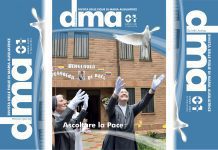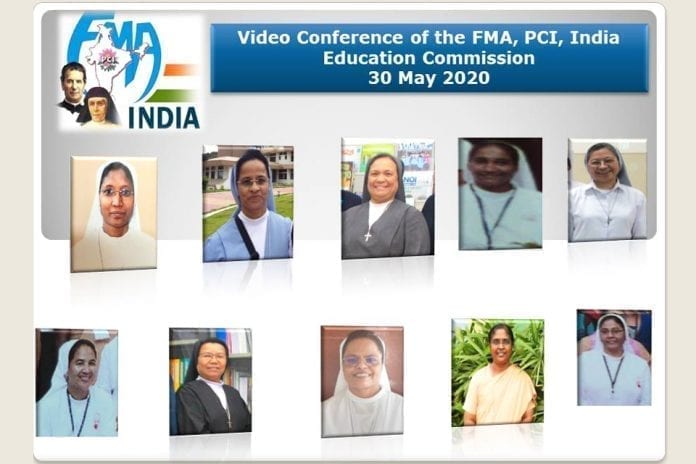Rome (Italy) On May 30, 2020, Sister Runita Borja, Councilor for Youth Ministry, with some collaborators of the Youth Ministry Sector in Rome, animated the video conference with the Referents of the Schools of the Seven Provinces of the Interprovincial Conference of India (PCI), on the theme: “The Covid-19 Pandemic is reshaping the field of Education: what lies ahead for the educational institutions of the FMA in India.”
As with all aspects of daily life, the pandemic is affecting global education systems, leading Schools, Universities, and Institutes of Higher Education to redefine attendance and formative offerings. In this perspective, it is essential that educators prepare themselves to face the measures to be taken. The Referents of the PCI FMA Schools are therefore called to research together and implement strategies so that the right to education, especially of the most vulnerable categories, is ensured.
The first form of collaboration was the exchange of knowledge and experiences on what each Province is putting in place to safeguard education both during the pandemic and in the future. The participants shared the experiences of the Provinces at various levels: personal, community, educational, psychological, spiritual, formative, humanitarian, and economic aspects. The sharing was appreciated by all the participants, as it led to know each other’s experiences, suggesting new ideas to manage the diverse realities.
Some reflections that emerged:
- Distancing led teachers to focus on the use of technologies. The challenge was to ensure the possibility of inclusive digital learning (e-learning inclusive) for all students and to tackle the digital divide.
- The consequences of the pandemic on global prospects determine the need to identify new educational methods to prepare young people for the future.
- Staff recruitment and budget cuts.
- The distance from the school environment due to the pandemic brought to light various social and economic problems, including the difficulty of families to pay school fees, food insecurity and lack of housing, access to health care and childcare services, lack of attention to disabilities, internet access, and digital learning.
- Numerous rural students felt disadvantaged due to the lack of essential technological equipment and adequate internet connectivity to continue their studies at home. While small and large cities have infrastructures and technologies that guarantee academic continuity.
Sr. Runita Borja stressed the positive sides of this situation during her talk:
- the introduction of technologies and other innovative solutions;
- the increased autonomy of students in managing their learning;
- strengthening of parental involvement and cooperation;
- improving multi-sectional coordination;
- the increased pedagogical autonomy of teachers;
- a greater interest of society in the educational field;
- strengthening learning on global and citizenship issues;
- strengthening the partnership between the public and private.
In her closing words, Sister Runita encouraged the School of India Referents to continue as a team, to develop guidelines that may be able to accompany the Provinces in the commitment to a creative educational mission. Recalling the message of Pope Francis for the Global Educational Pact she said: “We are not alone, we are together in the Church and with other partners. Education is everyone’s responsibility. We are expanding our network because working in collaboration with other Educational Institutes is the need of the times”.




















